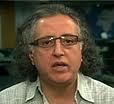Be the first to review “Neoliberalism-Neofascism 3-Pack” Cancel reply
Neoliberalism-Neofascism 3-Pack
3 CDs
Includes:
From Neoliberalism to Neofascism
Fascism of the classic variety is associated with Germany, Italy and Japan. It ends at the conclusion of World War II. But in the recent years there has been the development of a different variety which is neofascism. Neo is a Greek prefix meaning new. From Modi’s India to Erdogan’s Turkey neofascist autocratic regimes have taken hold. There is a direct connection from the failed economic policies of what is called neoliberalism to neofascism. Neoliberalism was given a huge boost in the 1980s by Reagan and Thatcher. Its characteristics are deregulation, cutting government spending, shredding the social safety net, privatization and tax cuts for the rich. The result: widespread immiseration and discontent. In its wake, demagogues exploit the situation. They are coming to power by scapegoating, instigating violence against minorities, coupled with loud calls for "getting our country back," and lots of flag waving.
Neoliberalism: An Accounting
Neoliberalism is an odd term when you think about it. It is hardly new and it is not particularly liberal. It has been a great economic success story-for the 1%. The detritus of neoliberalism litters the landscape from smashed unions to shredded safety nets, and deregulation of everything from airlines to banking to telecommunications. And how does one measure the human costs of shattered dreams and broken lives? The consequence? A backlash. Many working people are angry. Keep squeezing them and they will be prey for charlatans and demagogues who exploit their vulnerability and fear with scapegoating and false promises. As The Nation magazine observes, “Alongside growing economic inequality, we have suffered growing political inequality, with a Princeton study declaring that the influence of ordinary citizens on policy is ‘negligible.’ The United States,” The Nation says, is becoming “an oligarchy.” Recorded at the University of Massachusetts.
A New Social Contract
After 40 years the economic doctrine of neoliberalism has reached a dead end. But not for everyone. The 500 richest people in the world, all of whom are billionaires, gained a combined $1.2 trillion in wealth in 2019. Advocates of neoliberalism preach a kind of economic fundamentalism, i.e., markets rule, tax cuts for the rich, deregulation, privatization and austerity. As Ganesh Sitaraman in The Nation magazine reports, "Neoliberal policies created gaping inequality, unleashing the economically powerful to reshape politics, markets, and society to serve their own interests. Neoliberalism’s radical individualism sapped society of community and solidarity, leaving people lonely and isolated, ultimately pushing us to retreat into tribal identities. We can now see,” Sitaraman concludes, “that its results were disastrous.” What needs to happen? It's time for a new social contract.
Speakers

Prabhat Patnaik
Prabhat Patnaik is an internationally renowned economist. He is a professor emeritus at the Centre for Economic Studies and Planning at Jawaharlal Nehru University in New Delhi. He is the author of Monopoly Capital Then and Now and The October Revolution and the Survival of Capitalism and co-author with his wife, Utsa Patniak, of The Drain of Wealth and Capital and Imperialism: Theory, History, and the Present.

Noam Chomsky
Noam Chomsky, by any measure, has led a most extraordinary life. In one index he is ranked as the eighth most cited person in history, right up there with Aristotle, Shakespeare, Marx, Plato and Freud. His contributions to modern linguistics are legendary. In addition to his pioneering work in that field, he has been a leading voice for peace and social justice for many decades. Chris Hedges says he is “America’s greatest intellectual” who “makes the powerful, as well as their liberal apologists, deeply uncomfortable.” The New Statesman calls him “the conscience of the American people.” He is Professor Emeritus in the Department of Linguistics and Philosophy at MIT and Laureate Professor of Linguistics and Haury Chair in the Program in Environment and Social Justice at the University of Arizona. At 95, he continues to inform and inspire people all over the world. He is the author of scores of books, his latest are Consequences of Capitalism, Chronicles of Dissent and Notes on Resistance.

Joseph Stiglitz
Joseph Stiglitz, a professor at Columbia University, is the recipient of the Nobel Prize in Economics. He was chair of the Council on Economic Advisors under Clinton. He also served as senior vice president and chief economist of the World Bank. His efforts to move the bank in a more progressive direction got him fired. He is the author of Globalization and Its Discontents, The Price of Inequality and People, Power, and Profits.






Reviews
There are no reviews yet.